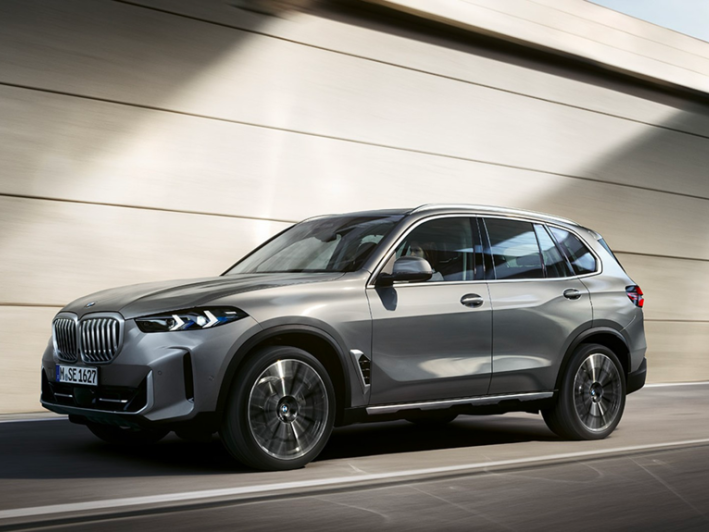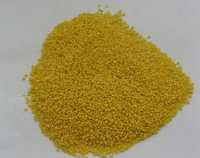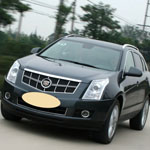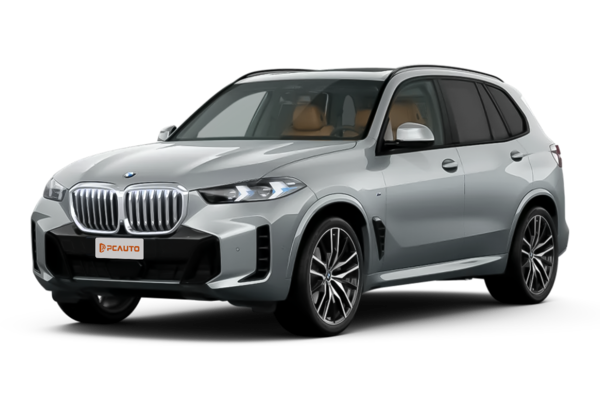Q
What is the trade in value of the 2020 BMW X5?
The trade-in value of a 2020 BMW X5 used car mainly depends on its condition, mileage, trim level, and current market demand, typically ranging from RM250,000 to RM350,000, with the exact figure requiring a professional appraisal. The xDrive40i variant, powered by a 3.0-liter inline-six turbocharged engine, tends to hold its value better due to its balanced performance, while the plug-in hybrid xDrive45e sees more price fluctuations influenced by new energy trends. It's advisable to get real-time quotes through official certified pre-owned channels or third-party platforms before trading in, and note that a complete service history can significantly boost the valuation. Notably, luxury SUVs generally have a higher depreciation rate in the first three years in the used car market, but the X5 maintains strong residual value thanks to the brand's reputation and handling performance. Some high-end trims, such as those equipped with the M Sport package or advanced driver assistance systems, command a noticeable premium. If planning to upgrade to a newer model, keep an eye on brand-launched trade-in promotions, as some dealers may offer additional subsidies.
Special Disclaimer: This content is published by users and does not represent the views or position of PCauto.
Related Q&A
Q
How much should I pay for a 2020 BMW X5?
The 2020 BMW X5 is currently priced between approximately RM250,000 and RM350,000 in the used car market, with specific prices varying depending on factors such as vehicle condition, mileage, trim level, and whether it is still under the original factory warranty. The xDrive40i, powered by a 3.0-liter inline-six turbocharged engine, is the most common variant. Models equipped with a panoramic sunroof, 12.3-inch infotainment screen, and advanced driver assistance systems tend to hold their value better. It's worth noting that when buying a used luxury SUV, it's advisable to prioritize vehicles with complete service records and to use third-party inspection services to verify the condition of the engine and transmission. Among its peers, the 2020 X5 stands out for its technological features and handling, particularly the standard Adaptive suspension system and precise steering tuning. However, long-term maintenance costs are higher than those of mainstream brands, with factory-recommended service intervals of every 10,000 kilometers or 12 months. If considering financing the purchase, it's recommended to compare used car loan interest rates offered by different banks; current market rates are approximately between 3.5% and 4.8% annual interest.
Q
What is the maintenance cost for a 2020 BMW X5?
The maintenance costs for the 2020 BMW X5 can vary depending on how the vehicle is used and the specific services needed. Regular maintenance, which includes basic items like oil changes and filter replacements, typically ranges from around 1000 to 1500 Malaysian Ringgit. The exact price depends on the service center you choose and whether you opt for original equipment or third-party parts. If you need more extensive work like brake pad replacements, tire changes, or complex inspections, costs can go up. For example, replacing both front and rear brake pads might set you back between 2000 and 3000 Malaysian Ringgit. It’s a good idea to stick to the manufacturer’s recommended maintenance schedule to avoid pricier repairs down the line from neglect. As a luxury SUV, the X5 does have relatively higher maintenance costs, but keeping up with regular care will definitely help extend its lifespan and keep it performing well. If you’re looking to cut costs a bit, reputable third-party repair shops can be an option—just make sure they use parts and oil that meet BMW’s specifications to avoid affecting your warranty or the vehicle’s performance.
Q
Is the 2020 X5 a good family car?
The 2020 BMW X5 is a luxury SUV that's perfect for family use, excelling in space, comfort, and safety. It offers a roomy five-seat layout, with a trunk capacity of 650 liters that expands to 1860 liters when the rear seats are folded down—plenty of space for family luggage or large items. The cabin features high-quality seat materials and excellent sound insulation, ensuring passenger comfort during long drives. In terms of safety, the 2020 X5 comes standard with advanced features like automatic emergency braking, lane keeping assist, and blind spot monitoring. Some models even offer adaptive cruise control and a surround-view camera system, further enhancing driving safety. Under the hood, the xDrive40i model is powered by a 3.0-liter inline-six turbo engine paired with an 8-speed automatic transmission, delivering ample power while still maintaining decent fuel efficiency. For tech-savvy families, the iDrive 7.0 system supports voice control and wireless CarPlay, making operation a breeze. It's worth noting that while the X5's maintenance costs are relatively high, its reliable quality and rich components make it a strong competitor in its class. If your budget allows and you're after a luxury experience, it's a family vehicle worth considering.
Q
What is the price of BMW X5 2020?
The used car prices for the 2020 BMW X5 range from approximately 250,000 to 400,000 Ringgit, depending on condition, mileage, and specifications. The entry-level xDrive40i models are priced lower, while the high-performance X5 M50d or versions equipped with premium packages can reach the upper end of that bracket. This vehicle is powered by either a 3.0-liter inline-six turbocharged engine or a 4.4-liter V8 engine, and comes standard with xDrive all-wheel drive system and intelligent driving assistance features. Used prices are significantly influenced by maintenance records and remaining warranty period. Among luxury SUVs in its class, the X5 stands out for its handling and technological feel, making it particularly suitable for consumers who value driving experience. It is recommended to inspect the chassis and iDrive system through official certified pre-owned channels before purchasing, and also compare it with the same-year Mercedes-Benz GLE or Audi Q7. These three German SUVs each have their own focuses in terms of space and configuration, but the X5's off-road mode and rear-wheel active steering system perform more prominently in complex road conditions.
Q
How much does a BMW X5 2020 cost?
The used car prices for the 2020 BMW X5 typically range from 250,000 to 350,000 Ringgit, depending on the vehicle's condition, mileage, trim level, and whether it's still under the original factory warranty. Higher-spec versions like the xDrive40i or M50d will command higher prices. This model is powered by either a 3.0-liter inline-six turbocharged engine or a 4.4-liter V8, coming standard with xDrive all-wheel drive and adaptive suspension. Tech features include 12.3-inch dual screens, gesture control, and driver assistance systems, with handling and luxury that stand out in its class. It's worth noting that when buying, it's advisable to go through BMW's official certified pre-owned channels, where vehicles undergo rigorous inspections and come with extended warranties. Also, keep an eye on road tax and insurance costs, as larger-displacement models have higher annual expenses. If considering a new energy option, keep an eye out for the later-released plug-in hybrid X5 xDrive45e, which offers better fuel efficiency.
Q
Does the 2024 BMW X5 qualify for tax credits?
The 2024 BMW X5 doesn't currently qualify for tax incentives in Malaysia. Here's the deal: Malaysia's tax breaks are mainly aimed at locally-assembled (CKD) Energy Efficient Vehicles (EEVs) or electric vehicles. Since the X5 is a fully imported (CBU) model and runs on good old-fashioned petrol, it's generally left out of those schemes.
To encourage greener choices, the Malaysian government offers reductions on import duties and sales tax for cars with EEV certification or fully electric vehicles. You'll see some hybrids or EVs getting those tax perks, for example. If you're into more efficient options, BMW's plug-in hybrids like the X5 xDrive45e might be worth a look – they could score some tax relief under certain conditions.
Before you take the plunge, though, it's smart to check in with the Royal Malaysian Customs Department or your nearest BMW dealership for the latest info. Tax incentives can shift with the annual budget announcements, so you don't want to miss any updates. On top of that, Malaysia slaps pretty hefty tariffs on imported luxury cars, and that's another reason the X5 comes with a higher price tag here.
Q
How much does it cost to maintain a BMW in 2024?
The cost of maintaining a BMW in Malaysia for 2024 varies depending on the model, age of the car, and the specific services needed. Generally speaking, a routine service – which covers an oil change, oil filter replacement, and basic inspections – will set you back around 800 to 1,500 Malaysian Ringgit. For more extensive services, like changing brake pads or transmission fluid, you're looking at 2,000 to 4,000 Ringgit or even more, depending on the BMW model and the pricing at the authorized service center.
As a luxury brand, BMWs do come with relatively higher maintenance costs. Part of that is down to the use of high-performance components and precision engineering, but these also help ensure your car stays in top shape for the long haul. Another option for owners is BMW's official service packages. These usually let you save some money and make budgeting more straightforward.
It's worth remembering that regular maintenance isn't just about keeping your car running smoothly – it also helps preserve its resale value when the time comes to sell. So, it's a good idea to stick strictly to BMW's recommended service intervals and choose official or certified service centers to guarantee quality work. If you're watching your budget, certified third-party BMW workshops can be an alternative, but make sure they meet the required technical standards and have access to genuine parts.
Q
How much is insurance on a 2024 BMW X5?
In Malaysia, insurance costs for the 2024 BMW X5 can vary quite a bit, typically ranging from around RM8,000 to RM15,000 annually. The exact figure hinges on several factors: the specific model (like the xDrive40i or M50i), engine displacement, the owner's age and driving history, the type of coverage (comprehensive vs. third-party only), and the insurance company's discount structure – with No Claim Discounts (NCD) potentially slashing premiums by up to 55%.
Then there's the reality of insuring a luxury vehicle: repair costs and import duties on parts play a big role here. As a premium SUV, the X5's genuine parts and servicing tend to be pricier than your average car, which naturally bumps up the insurance tab.
My advice? Head to insurance company websites or chat with agents to get accurate quotes. It’s also smart to compare the extra perks different providers offer, like roadside assistance or specific policy clauses. Malaysia’s insurance market also throws in add-ons such as natural disaster coverage – definitely worth considering if you’re in an area prone to heavy monsoons.
Understanding all these variables will help you budget smarter for your X5 and make sure you’re getting the right level of protection.
Q
How much does it cost to own a 2024 BMW X5?
The cost of owning a 2024 BMW X5 in Malaysia really depends on the specific trim and how you spec it out. Brand-new, you're looking at starting prices around RM500,000, and if you go all-in on the top-of-the-line model, it can easily push past RM700,000. That bottom line includes the purchase price, insurance, road tax, registration fees, and then there's the day-to-day running costs to factor in too.
Insurance is one of those variables – it'll swing based on your age and driving history, but you're generally looking at somewhere between RM8,000 to RM15,000 annually. Road tax, on the other hand, is calculated by engine displacement; for the 3.0-liter models, that's roughly RM2,500 a year.
Now, when it comes to maintenance, BMWs aren't the cheapest to upkeep. Regular servicing every 10,000 km or 12 months (whichever comes first) will set you back around RM2,000 to RM4,000. And let's not forget fuel – the 3.0L variants return a combined fuel economy of about 10 to 12 liters per 100 km, though that'll vary depending on how heavy your right foot is.
For prospective buyers, beyond just the upfront budget, it's smart to look into BMW's warranty and after-sales package. Typically, they offer a 5-year, unlimited-mileage warranty as standard, which does help ease some long-term ownership worries. If you're financing, you'll need to tack on interest costs too. Car loan interest rates in Malaysia usually hover between 2.5% to 3.5%, so it's definitely worth shopping around and comparing deals from different banks before signing on the dotted line.
Q
Is the BMW X5 made in China?
The BMW X5 Long Wheelbase version (G18) currently on sale in the Chinese market is produced at the BMW Brilliance Shenyang plant. This is a localized model launched by BMW to cater to Chinese consumers' demand for luxury SUVs. The standard wheelbase X5 (G05), on the other hand, is mainly imported into China from BMW's Spartanburg plant in the United States or its Rayong plant in Thailand.
As for the Malaysian market, the BMW X5s currently available are primarily imported from the Rayong plant in Thailand. Thanks to the tariff preferential agreements among ASEAN countries, BMW X5s imported from Thailand are more price-competitive. Malaysian consumers can enjoy BMW X5 quality that's on par with global standards, and at the same time, the models produced at the Thai plant have undergone adaptive adjustments for the tropical climate in Southeast Asia, such as enhanced air conditioning systems and improved heat dissipation performance.
It's worth mentioning that BMW has factories in multiple regions worldwide. This global production layout allows it to better meet the needs of different markets while ensuring consistent product quality. For Malaysian consumers, no matter which factory the BMW X5 is produced in, it has passed BMW's strict global unified quality standards inspection and can be purchased with confidence.
Latest Q&A
Q
How much should I pay for a 2020 BMW X5?
The 2020 BMW X5 is currently priced between approximately RM250,000 and RM350,000 in the used car market, with specific prices varying depending on factors such as vehicle condition, mileage, trim level, and whether it is still under the original factory warranty. The xDrive40i, powered by a 3.0-liter inline-six turbocharged engine, is the most common variant. Models equipped with a panoramic sunroof, 12.3-inch infotainment screen, and advanced driver assistance systems tend to hold their value better. It's worth noting that when buying a used luxury SUV, it's advisable to prioritize vehicles with complete service records and to use third-party inspection services to verify the condition of the engine and transmission. Among its peers, the 2020 X5 stands out for its technological features and handling, particularly the standard Adaptive suspension system and precise steering tuning. However, long-term maintenance costs are higher than those of mainstream brands, with factory-recommended service intervals of every 10,000 kilometers or 12 months. If considering financing the purchase, it's recommended to compare used car loan interest rates offered by different banks; current market rates are approximately between 3.5% and 4.8% annual interest.
Q
What is the maintenance cost for a 2020 BMW X5?
The maintenance costs for the 2020 BMW X5 can vary depending on how the vehicle is used and the specific services needed. Regular maintenance, which includes basic items like oil changes and filter replacements, typically ranges from around 1000 to 1500 Malaysian Ringgit. The exact price depends on the service center you choose and whether you opt for original equipment or third-party parts. If you need more extensive work like brake pad replacements, tire changes, or complex inspections, costs can go up. For example, replacing both front and rear brake pads might set you back between 2000 and 3000 Malaysian Ringgit. It’s a good idea to stick to the manufacturer’s recommended maintenance schedule to avoid pricier repairs down the line from neglect. As a luxury SUV, the X5 does have relatively higher maintenance costs, but keeping up with regular care will definitely help extend its lifespan and keep it performing well. If you’re looking to cut costs a bit, reputable third-party repair shops can be an option—just make sure they use parts and oil that meet BMW’s specifications to avoid affecting your warranty or the vehicle’s performance.
Q
Is the 2020 X5 a good family car?
The 2020 BMW X5 is a luxury SUV that's perfect for family use, excelling in space, comfort, and safety. It offers a roomy five-seat layout, with a trunk capacity of 650 liters that expands to 1860 liters when the rear seats are folded down—plenty of space for family luggage or large items. The cabin features high-quality seat materials and excellent sound insulation, ensuring passenger comfort during long drives. In terms of safety, the 2020 X5 comes standard with advanced features like automatic emergency braking, lane keeping assist, and blind spot monitoring. Some models even offer adaptive cruise control and a surround-view camera system, further enhancing driving safety. Under the hood, the xDrive40i model is powered by a 3.0-liter inline-six turbo engine paired with an 8-speed automatic transmission, delivering ample power while still maintaining decent fuel efficiency. For tech-savvy families, the iDrive 7.0 system supports voice control and wireless CarPlay, making operation a breeze. It's worth noting that while the X5's maintenance costs are relatively high, its reliable quality and rich components make it a strong competitor in its class. If your budget allows and you're after a luxury experience, it's a family vehicle worth considering.
Q
What is the price of BMW X5 2020?
The used car prices for the 2020 BMW X5 range from approximately 250,000 to 400,000 Ringgit, depending on condition, mileage, and specifications. The entry-level xDrive40i models are priced lower, while the high-performance X5 M50d or versions equipped with premium packages can reach the upper end of that bracket. This vehicle is powered by either a 3.0-liter inline-six turbocharged engine or a 4.4-liter V8 engine, and comes standard with xDrive all-wheel drive system and intelligent driving assistance features. Used prices are significantly influenced by maintenance records and remaining warranty period. Among luxury SUVs in its class, the X5 stands out for its handling and technological feel, making it particularly suitable for consumers who value driving experience. It is recommended to inspect the chassis and iDrive system through official certified pre-owned channels before purchasing, and also compare it with the same-year Mercedes-Benz GLE or Audi Q7. These three German SUVs each have their own focuses in terms of space and configuration, but the X5's off-road mode and rear-wheel active steering system perform more prominently in complex road conditions.
Q
How much does a BMW X5 2020 cost?
The used car prices for the 2020 BMW X5 typically range from 250,000 to 350,000 Ringgit, depending on the vehicle's condition, mileage, trim level, and whether it's still under the original factory warranty. Higher-spec versions like the xDrive40i or M50d will command higher prices. This model is powered by either a 3.0-liter inline-six turbocharged engine or a 4.4-liter V8, coming standard with xDrive all-wheel drive and adaptive suspension. Tech features include 12.3-inch dual screens, gesture control, and driver assistance systems, with handling and luxury that stand out in its class. It's worth noting that when buying, it's advisable to go through BMW's official certified pre-owned channels, where vehicles undergo rigorous inspections and come with extended warranties. Also, keep an eye on road tax and insurance costs, as larger-displacement models have higher annual expenses. If considering a new energy option, keep an eye out for the later-released plug-in hybrid X5 xDrive45e, which offers better fuel efficiency.
View MoreRelated News

BMW X5 will become BMW's first model equipped with a hydrogen fuel cell, with a range of 504 kilometers
JamesSep 8, 2025

How strong is the overall strength of the BMW X5 that it even makes the wealthy give up the Benz GLE and Audi Q7?
RobertSep 25, 2024

The 2024 BMW X5 xDrive50e is priced at RM 528,100, with 0-100km/h just taking 4.8 seconds
LienJun 26, 2024

Audi RS6 sedan version may return to compete fully with the BMW M5
WilliamNov 21, 2025

Neue Klasse platform's first mass-produced vehicle, the all-new BMW iX3 makes its debut, looks just like a concept car
LienSep 8, 2025
View More













Pros
Cons